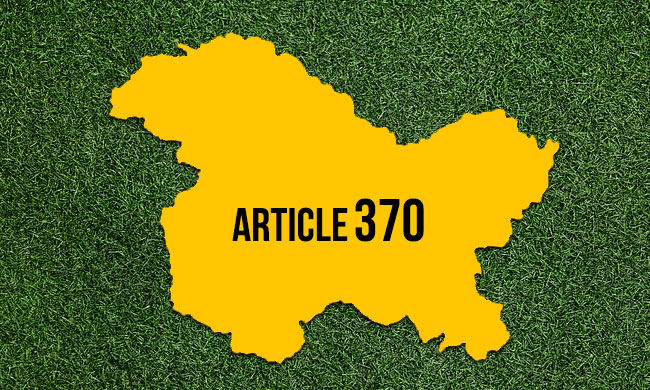Ashish Sood
Earlier this month, a Constitution Bench of the Supreme Court unanimously upheld the power of the President to abrogate Article 370. The presidential order on the abrogation of Article 370 was passed in August 2019, which led to the reorganisation of the full-fledged State of Jammu and Kashmir into two Union Territories.
This Presidential order passed on the advice of the union government led by Prime Minister Narendra Modi marked a significant change in our post-Independence history. The abrogation of Article 370 removed the special autonomy that Jammu and Kashmir enjoyed, bringing it under the direct governance of the Indian central government, thus fully integrating the state with the Indian union.
The critics had expressed concerns about the constitutional implications, the manner in which the decision was implemented, and the potential impact on the demographic and cultural fabric of the region. However, the Supreme Court order has vindicated the government move.
The region for the past several decades has been experiencing security challenges, both internal and external. The removal of special status as a means to integrate Jammu and Kashmir, in the past four years, has proved to be the tool that knit the Himalayan state with the rest of the country and spur economic development.
There has also been a change in the political landscape post abrogation. New parties have emerged, who are challenging the hegemony of the family-run political enterprises. The traditional political leaders too have been encouraged to participate in the democratic process. Local body elections have taken place, and the political scenario is evolving.
There have been calls for a political dialogue to address the concerns of the people in Jammu and Kashmir. The government has expressed its commitment to democratic processes and has engaged in diplomatic efforts to explain its decisions to the international community.
The government has announced several economic packages and development initiatives aimed at promoting investment, infrastructure development, and job creation in the region. The intent is to accelerate economic growth and improve the standard of living for the people of Jammu and Kashmir. This would get a further fillip following the Supreme Court order.
The move to revoke Article 370 generated international attention and varying responses from different countries. Some nations supported India’s sovereign right to make such decisions, while others expressed concerns about the situation in the region. However, the Supreme Court order on the executive decision should put to rest all such discussions.
The integration of Jammu and Kashmir with the rest of India involves not only legal and political changes but also social and cultural integration. Promoting inclusivity, understanding, and harmony among different communities is vital for the overall well-being of the people in the region. The union government is completely committed to bring the social integration of the union territory with the rest of the country.
Protection of human rights and providing good governance are fundamental to the success of any region. The union government is making all efforts to address any grievances, promote transparency, and strengthen institutions for effective governance. The Supreme Court order would only go on to boost the resolve of the union government.
It’s crucial to note that the situation is dynamic, and developments continue to unfold. The path ahead for Jammu and Kashmir involves addressing political, economic, and security challenges while fostering a conducive environment for sustainable development and inclusive governance. The resolution of long standing issues and the restoration of normalcy will likely require continued efforts from all stakeholders involved.
The next major step in that direction would be to participate in the upcoming Lok Sabha polls and subsequently assembly polls in large numbers. Narendra Modi government has ensured that integration of Jammu and Kashmir is today solidly embedded in our constitution. Under the circumstances the best way forward for the people of Jammu and Kashmir is to participate in the democratic process in large numbers and walk hand-in-hand with the national mainstream.
(The writer is a senior BJP leader and Seh Prabhari of J&K)


